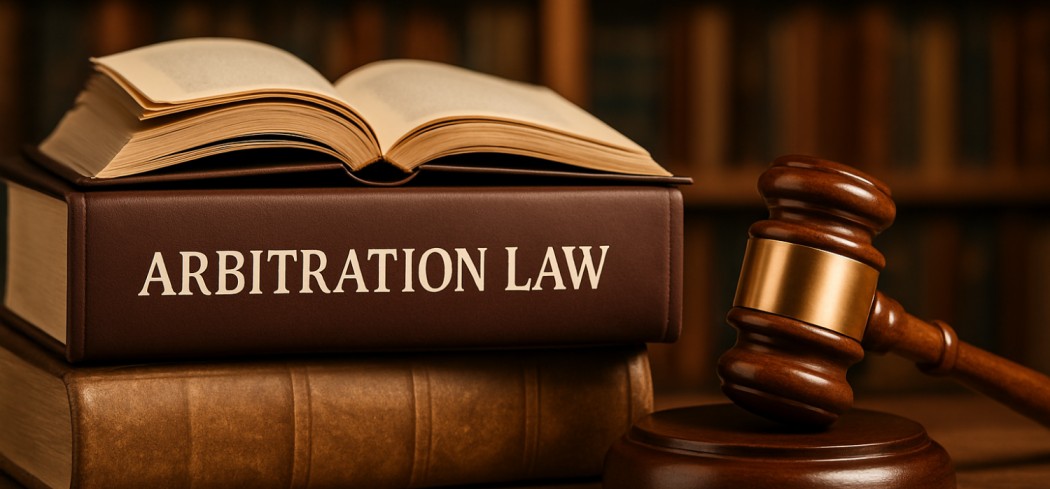
Introduction to Arbitration Law
In today’s fast-paced business world, disputes are inevitable. However, long court battles can be costly, time-consuming, and disruptive. That’s why more individuals and companies are turning to alternative dispute resolution methods such as arbitration and mediation. An experienced arbitration lawyer plays a crucial role in helping parties resolve conflicts efficiently while protecting their legal rights.
Arbitration provides a private, quicker, and frequently more cost-effective method of resolving disputes than traditional court litigation. In India, the Arbitration and Conciliation Act lays down the legal framework for arbitration, conciliation, and related processes. Whether you’re a global corporation or a growing business, engaging an experienced arbitration lawyer helps secure fair, efficient, and enforceable resolutions.
What Is Arbitration?
Arbitration is a legal process that involves a third-party arbitrator who fairly hears both perspectives before making a binding judgment. This process is widely used in commercial, contractual, construction, and international trade disputes.
Unlike court proceedings, arbitration is confidential and flexible, allowing the parties to choose the arbitrator, venue, and applicable laws. An arbitration lawyer ensures that your case is presented effectively, your rights are protected, and the award is enforceable.
The Role of an Arbitration Lawyer
A skilled arbitration lawyer provides comprehensive legal services throughout the arbitration process, including:
By working with an experienced arbitration lawyer, you gain a strategic advantage in both domestic and international disputes.
The Arbitration and Conciliation Act
The Arbitration and Conciliation Act, 1996, is the main law that guides arbitration in India. It is based on the UNCITRAL Model Law and governs both domestic and international arbitration. Key features include:
An arbitration lawyer well-versed in the arbitration conciliation act can guide clients through the legal framework to achieve the best results
Why Choose Arbitration Over Litigation?
Choosing arbitration has several advantages:
A knowledgeable arbitration lawyer ensures these advantages work in your favor.
When to Hire an Arbitration Lawyer
You should engage when:

Mediation vs Arbitration
Although arbitration and mediation are both alternative dispute resolution methods, they differ in important ways.
Often, parties attempt mediation first, and if that fails, move to arbitration. Having both an arbitration lawyer and a mediation lawyer in your legal team ensures you are prepared for either approach.
International Commercial Arbitration
With globalization, cross-border trade disputes have become common. International commercial arbitration allows parties from different countries to resolve disputes witho ut resorting to foreign courts.
Key benefits include:
An arbitration lawyer experienced in international commercial arbitration can navigate complex jurisdictional issues, cultural differences, and multiple legal systems.
Stages of the Arbitration Process
1. Agreement to Arbitrate
Often contained in contracts, this clause sets the foundation for arbitration. An arbitration lawyer ensures it is clear, enforceable, and suited to your needs.2. Appointment of Arbitrators
Parties can choose their arbitrator together or follow set institutional rules. The arbitration conciliation act outlines default procedures if there’s no agreement.3. Preliminary Hearings
At this stage, timelines are established, procedures are outlined, and the central issues of the dispute are identified.4. Evidence and Hearings
An arbitration lawyer presents your case through documents, witness statements, and expert testimony.5. The Award
The arbitrator issues a binding decision. A skilled arbitration lawyer ensures the award is enforceable.Arbitration Institutions and Rules
Arbitration can be ad hoc or institutional. Common institutions include:
Each has its own rules, and a competent lawyer selects the best fit for your dispute.
Enforcement of Arbitral Awards
The arbitration conciliation act provides mechanisms to enforce both domestic and foreign awards in India. Enforcement involves filing an application in the competent court, and challenges can be made only on limited grounds such as fraud or violation of public policy.
An arbitration lawyer ensures your award is enforced promptly and effectively.

Benefits of Having a Mediation Lawyer in Arbitration Cases
Even in arbitration, settlement discussions often arise. A mediation lawyer can:
Combining the skills of both an arbitration lawyer and a mediation lawyer increases your chances of a favorable resolution.
Challenges in Arbitration
While arbitration offers many benefits, it’s not without challenges:
An experienced arbitration lawyer can mitigate these challenges through strategic planning.
Case Studies
Case 1 – International Shipping Disput
A client faced a cross-border shipping contract dispute. Our arbitration lawyer initiated proceedings under SIAC rules, securing a favorable award enforceable in both jurisdictions.
Case 2 – Partnership Dispute
Two business partners reached an impasse. Our mediation lawyer successfully negotiated a settlement, avoiding the need for prolonged arbitration.
Case 3 – Enforcement of Foreign Award
We assisted a multinational in enforcing a London-seated award in India under the arbitration conciliation act, ensuring swift compliance.
Frequently Asked Questions (FAQs) on Arbitration Conciliation Act
Q1. What does an arbitration lawyer do?
An arbitration lawyer assists clients in resolving disputes outside of traditional courts through arbitration. They handle drafting agreements, representing clients before arbitral tribunals, and ensuring the arbitration process is fair and legally compliant.Q2. Can I use mediation before arbitration?
Yes, Mediation is often considered before arbitration to encourage a friendly settlement. A mediation lawyer can guide you through the process while safeguarding your rights and interests. If mediation does not lead to a settlement, a mediation lawyer can also help you transition smoothly into arbitration, following the terms of your agreement. These methods often save time, reduce costs, and help maintain good business relationships.Q3. Is arbitration legally binding in India?
Yes. Arbitration awards carry legal force in India and can be enforced in court under the Arbitration and Conciliation Act, 1996.Q4. Should I hire an arbitration lawyer if my dispute involves another country?
Yes. An experienced arbitration lawyer ensures compliance with both domestic and international arbitration laws, making them essential for cross-border cases.Q5. How long does arbitration usually take in India?
The timeline varies depending on the case, but arbitration is usually quicker than court proceedings. Under Indian law, arbitration is generally expected to conclude within 12 months from the commencement of proceedings.Q6: How much does it cost to hire an arbitration lawyer in India?
Arbitration fees are influenced by the nature of the dispute, the procedural rules followed, and the advocate’s expertise. Most arbitration lawyers offer an initial consultation to discuss fees.Q7: Can arbitration decisions be challenged in court?
Yes, but only under limited circumstances, such as procedural errors, violation of natural justice, or if the award is against public policy.Q8: How is arbitration different from litigation?
Arbitration is a confidential dispute resolution process where an arbitrator, rather than a judge, decides the matter. It is typically faster, confidential, and more flexible than litigation.Conclusion: Resolve Disputes Effectively
In an era where time and confidentiality are crucial, arbitration offers a smart alternative to court battles. Whether you’re dealing with a local business disagreement or a complex international commercial arbitration, the right arbitration lawyer can make all the difference.
Backed by a deep understanding of the arbitration conciliation act, and the ability to work alongside skilled mediation lawyers, our team ensures you get efficient, fair, and enforceable outcomes.
If you are facing a dispute and need quick, effective resolution, contact VRIN Legal today. Consult an experienced arbitration lawyer to safeguard your rights and achieve conflict resolution with clarity and confidence.
Let’s Resolve Your Disputes
Get legal help with arbitration cases.